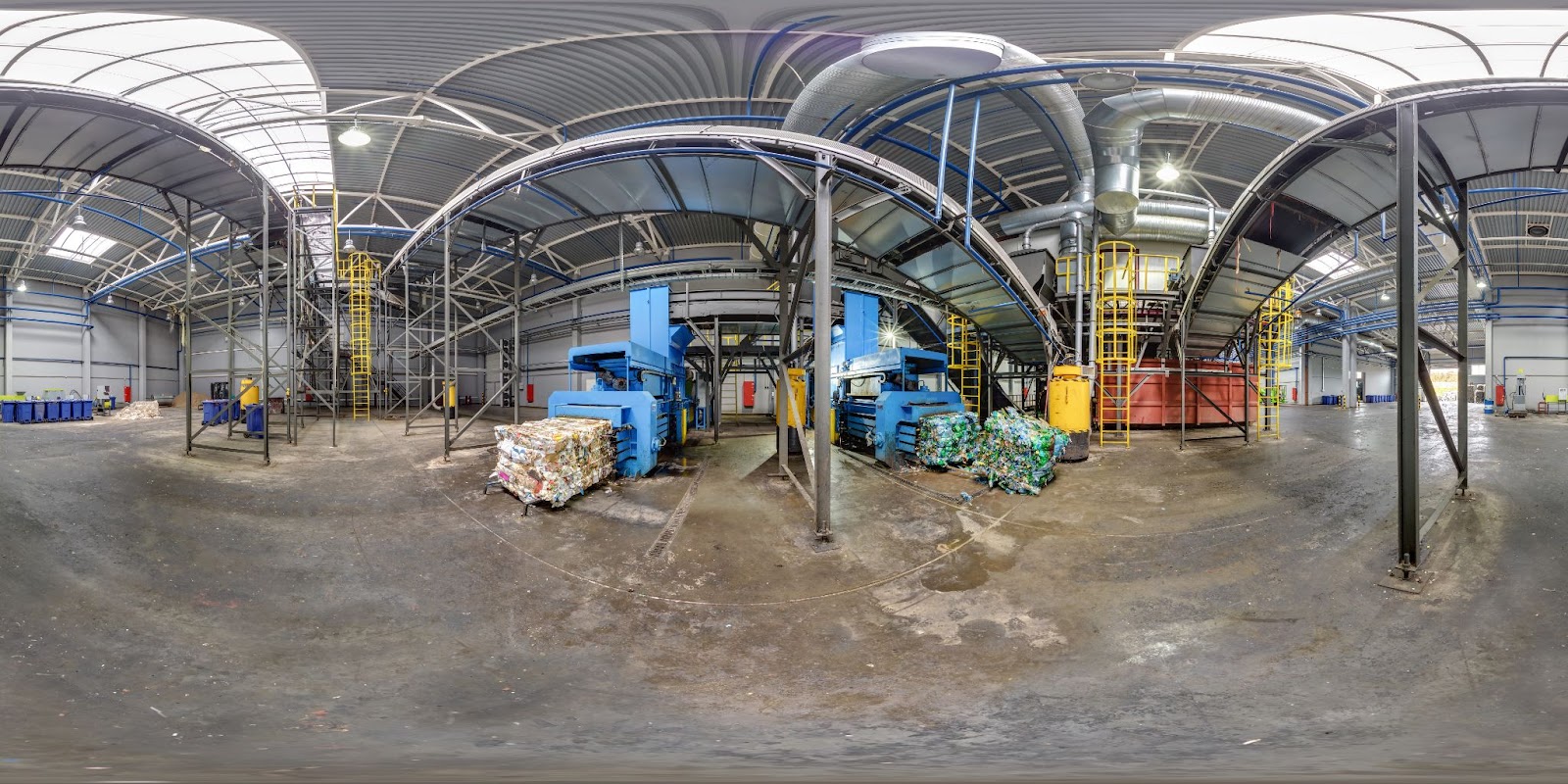The Burkasan Recycling Facility is one of the leading recycling organizations in Turkey, operating with the goal of raising environmental awareness and supporting sustainable development. Specializing in waste management and recycling services, this facility offers environmentally friendly solutions. Burkasan successfully manages the collection, separation, and reprocessing of a wide range of waste, including industrial waste, packaging waste, electronic waste, and hazardous waste.
The facility is equipped with advanced technology to ensure that waste is processed in an eco-friendly manner. This contributes to the preservation of natural resources and the reduction of greenhouse gas emissions. Additionally, Burkasan places a strong emphasis on social responsibility projects within the recycling sector, running various programs to educate and raise awareness about recycling. The facility’s innovative approaches make it a leader in Turkey’s recycling industry, while also pursuing a vision of leaving a cleaner and more livable world for future generations.
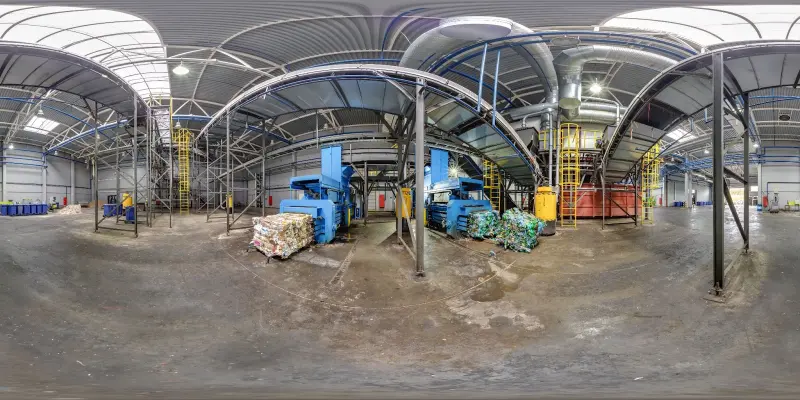
Contents
- Burkasan Refrigerator Recycling Facility
- Recycling Facilities
- Types of Recycling Facilities
- Environmentally Friendly and Sustainable Solutions in Refrigerator Recycling
- Requirements for Setting Up a Recycling Facility
- Frequently Asked Questions
- Frequently Asked Questions and Answers
Burkasan Refrigerator Recycling Facility
The Burkasan Refrigerator Recycling Facility is one of the pioneering facilities in Turkey that ensures the recycling of electronic waste without harming the environment. This facility focuses on the recycling of large household appliances, such as refrigerators that have reached the end of their lifecycle. Refrigerators are complex devices that require proper separation and recycling of materials such as refrigerant gases, plastics, metals, and other components. Burkasan, with its specialized team and equipment, recycles refrigerators in a way that minimizes environmental impact.
The facility ensures the safe separation and disposal of harmful gases such as CFCs and HCFCs, which are found in cooling systems and damage the ozone layer, while enabling the reprocessing of other materials, such as metals and plastics. This contributes to the conservation of natural resources and energy savings. The Burkasan refrigerator recycling facility also conducts educational and awareness-raising activities aimed at promoting environmental consciousness. This facility serves as a model not only in Turkey but also internationally, making significant contributions to environmental protection and sustainability goals in electronic waste recycling.
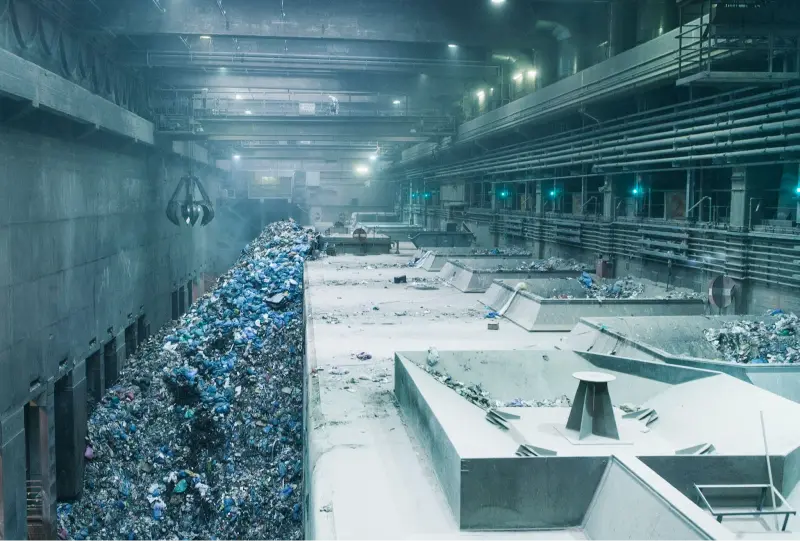
Recycling Facilities
Recycling facilities are critical in managing the process of collecting, reprocessing, and turning waste materials into reusable products. These facilities are responsible for the separation, classification, and extraction of recyclable materials from waste. Different types of waste, such as paper, plastic, glass, metal, electronic waste, and organic materials, go through various processes in recycling facilities. These materials, which have reached the end of their lifecycle, are reprocessed with appropriate technology and methods, allowing them to be transformed into new products or raw materials for the economy. Recycling facilities play a vital role in preserving natural resources, saving energy, and preventing environmental pollution. At the same time, they prevent waste from going to landfills, reducing greenhouse gas emissions and improving the efficiency of waste management systems for a sustainable environment and economy.
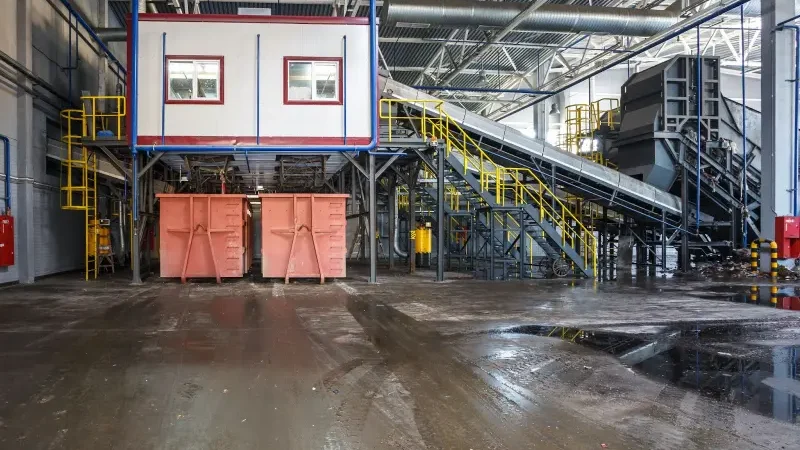
Types of Recycling Facilities
Recycling facilities are categorized based on the type of waste they recycle. The main types of recycling facilities include paper recycling facilities, plastic recycling facilities, glass recycling facilities, metal recycling facilities, electronic waste (e-waste) recycling facilities, and organic waste recycling facilities.
Paper recycling facilities collect used paper and cardboard materials and convert them into new paper products. Plastic recycling facilities collect and process different types of plastics, turning them into reusable raw materials. Glass recycling facilities melt glass bottles and other glass items to produce new glass products. Metal recycling facilities melt scrap metals and transform them into reusable metal products. Electronic waste recycling facilities dismantle old or broken electronic devices and recover valuable metals, plastics, and other components. Lastly, organic waste recycling facilities process biological waste, such as food and garden waste, through methods like composting or biogas production.
Each type of facility processes a specific type of waste, preventing environmental damage and returning the waste to the economy.
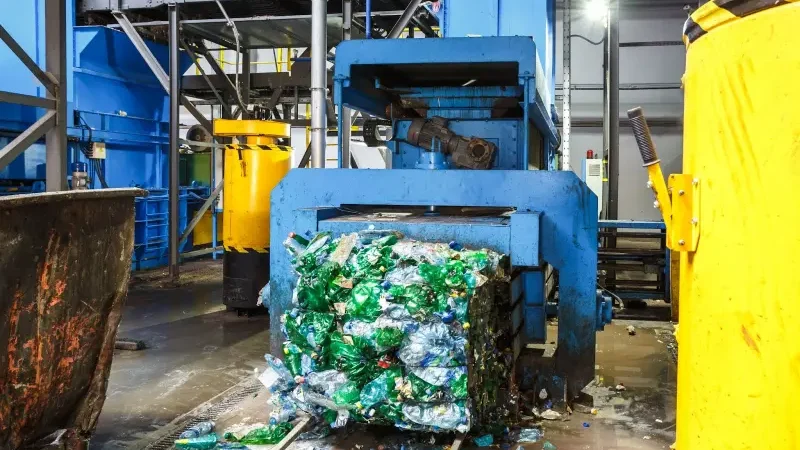
Burkasan: Environmentally Friendly and Sustainable Solutions in Refrigerator Recycling
Burkasan is one of the leading companies in Turkey in the field of refrigerator recycling, offering environmentally friendly and sustainable solutions. The recycling of end-of-life refrigerators is of great importance to the environment, as these appliances contain harmful gases and various materials that require special handling. Burkasan uses the latest technology in the refrigerator recycling process, ensuring that these devices are processed without harming the environment and are returned to the economy.
Burkasan’s refrigerator recycling facilities safely separate the refrigerant gases (such as CFCs and HCFCs, which damage the ozone layer), as well as plastics, metals, glass, and other components. This prevents the harmful gases from being released into the environment, significantly contributing to minimizing environmental impacts. The facility’s advanced technology systems allow for the effective separation and recycling of refrigerator parts, contributing to both the conservation of natural resources and energy savings.The refrigerator recycling process at Burkasan not only benefits the environment but also plays a significant role in the economy by recovering valuable raw materials. The reusable metals and plastics are made available again for use in production processes. Additionally, Burkasan conducts this process transparently and sustainably, adhering to environmental standards and international norms at every stage of recycling.
Burkasan’s work in refrigerator recycling raises the bar in the recycling sector, contributing to Turkey’s sustainable development goals. The company also increases its contribution to a cleaner and more livable future by educating the public about recycling through its awareness and educational projects.
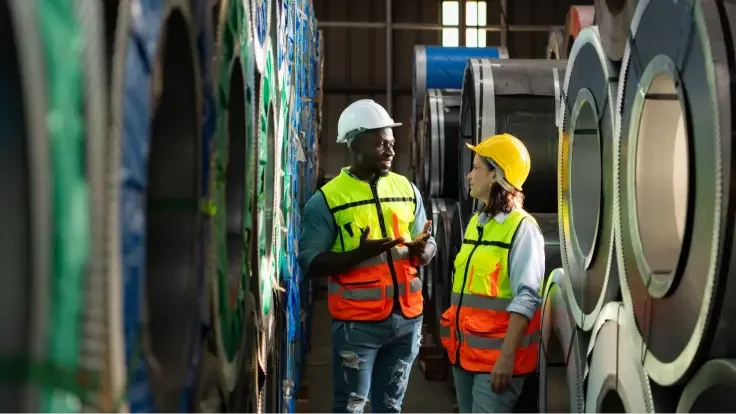
Requirements for Setting Up a Recycling Facility
There are several important steps and requirements for setting up a recycling facility. First and foremost, compliance with regulations is crucial. Recycling facilities must operate in accordance with local and national environmental laws, and it is necessary to obtain the required licenses and permits from the Ministry of Environment and Urbanization. These permits are mandatory to ensure compliance with environmental regulations covering waste collection, separation, and recycling processes.
The second step is choosing the right location. The facility should be located in an area where waste can be easily collected and processed, and to avoid potential negative environmental impacts, it should be situated near industrial zones or designated recycling areas.
Investment in the appropriate equipment and technology is necessary for the facility’s establishment. Advanced machines for sorting different types of waste, as well as equipment for compressing, crushing, and reprocessing, are critical for the facility’s efficient operation. It is also important that these machines are energy-efficient and environmentally friendly, ensuring the facility’s long-term success.
Qualified personnel are also essential for the successful operation of a recycling facility. Experts in environmental engineering and waste management are required to ensure the safe and efficient operation of the facility.
Lastly, an effective waste supply chain and logistics network must be established to ensure the efficient collection of waste from municipalities, industrial facilities, and individuals. This is a fundamental step in ensuring the sustainability of the facility.
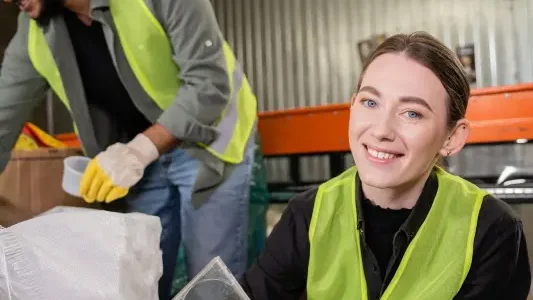
Frequently Asked Questions
1. What types of waste can recycling facilities process?
Recycling facilities are categorized based on the types of waste they process. There are facilities for paper, plastic, glass, metal, electronic waste (e-waste), and organic waste. Each facility focuses on specific types of waste, separating and subjecting them to the recycling process.
2. What are the environmental benefits of recycling facilities?
Recycling facilities help conserve natural resources and reduce environmental pollution. They also prevent waste from going to landfills, thereby reducing greenhouse gas emissions. In addition to saving energy, they play a crucial role in supporting a sustainable environment and economy.
3. What licenses and permits are required to establish a recycling facility?
To establish a recycling facility, it is first necessary to obtain the required licenses from the Ministry of Environment and Urbanization. Additionally, an Environmental Impact Assessment (EIA) report and waste management permits must be obtained from local authorities. Depending on the recycling process, special permits such as hazardous waste licenses may also be required.
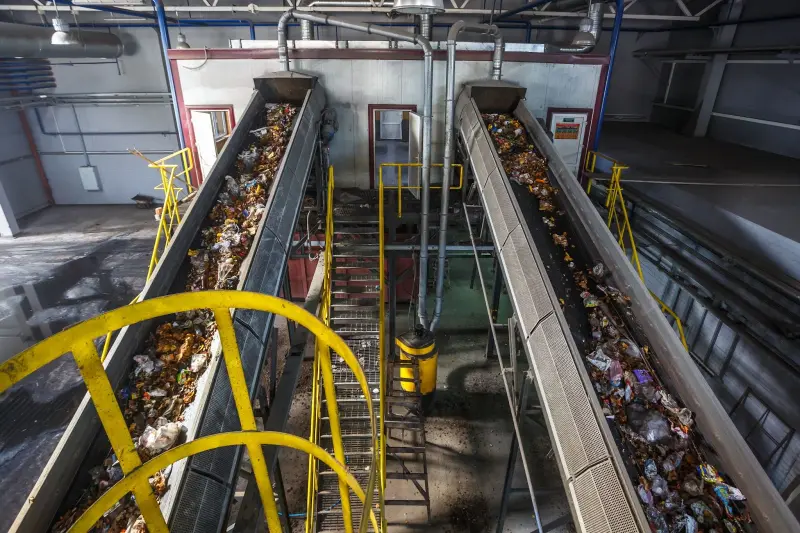
4. What technologies are used in recycling facilities?
The technologies used in recycling facilities vary according to the type of waste. Commonly used equipment includes sorting machines, pressing and crushing machines, metal separators, plasma and pyrolysis technologies. For electronic waste, shredders and recovery devices are used.
5. How is electronic waste (e-waste) processed in recycling facilities?
In recycling facilities, electronic waste is first dismantled into its components. In this phase, valuable metals (such as gold, silver, copper) and reusable plastics are separated. The safe removal and processing of harmful gases like CFCs is also important. These materials are recovered and reused in production processes.
6. What are the economic contributions of recycling facilities?
Recycling facilities process waste materials into raw materials for new products, reducing production costs. They also contribute to energy savings and prevent the depletion of natural resources. In addition, the recycling sector creates jobs and contributes to economic development.
7. What are the waste separation processes used in recycling facilities?
In recycling facilities, waste is first sorted by type. Various methods are used in this process, including manual sorting, magnetic separation (for metals), optical separators (for plastics), and air flow separation. The separated waste is then processed, cleaned, and transformed into reusable materials.

